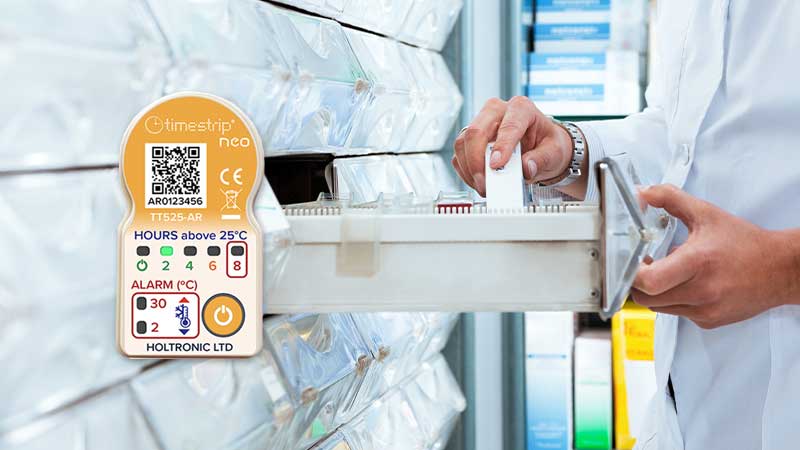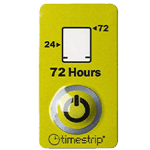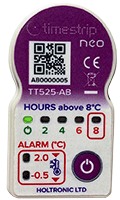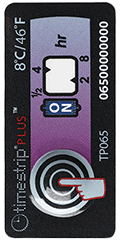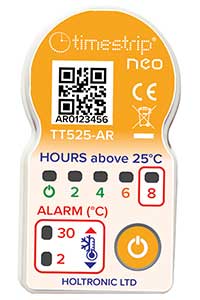Oncology Medicine
Timestrip neo temperature indicators were applied to oncology medicine bags. Unused medications could be returned to pharmacy when Timestrip neo showed temperature controls were met.
Contact us for your solution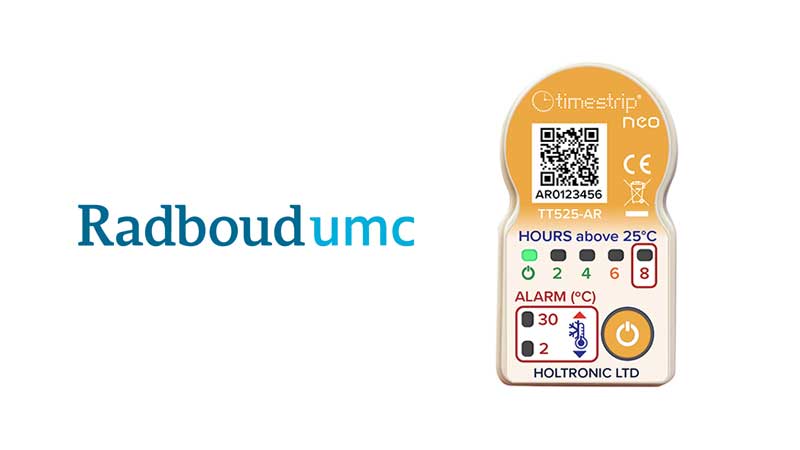
As well as the potential improvements in efficiency and patient care from re-dispensing unused anti-cancer drugs, there is a sustainability benefit associated with the reduced waste
Shirley Xie MSc, PhD student at Radboudumc
Solution for reducing oncology medicine waste
Current regulations do not allow for unused medicines returned from patients to be re-dispensed, a measure designed to provide a safeguard against counterfeit medicines entering the supply chain. A consequence of this is that genuine medicines are wasted, and delays in treatment possibly occur.
Oncology medicine temperature monitoring
Radboud University Medical Center (Radboudumc), based at Nijmegen in The Netherlands, wants to lead the way in the formation of sustainable, innovative and affordable healthcare. It also has an important task in increasing and disseminating knowledge and expertise.
Researchers at Radboudumc used their insight to recognise that if a system could be set up to ensure that returned medicines are genuine, and have not been subjected to adverse conditions during their journey to the patient, then a case can be made for reviewing the regulations. A trial was therefore instigated to evaluate the practicality of such a returns system. The trial would require a robust and practical method of verifying the condition of the drug consignments after their journey to patients.
Researchers at Radboudumc used their insight to recognise that if a system could be set up to ensure that returned medicines are genuine, and have not been subjected to adverse conditions during their journey to the patient, then a case can be made for reviewing the regulations. A trial was therefore instigated to evaluate the practicality of such a returns system. The trial would require a robust and practical method of verifying the condition of the drug consignments after their journey to patients.
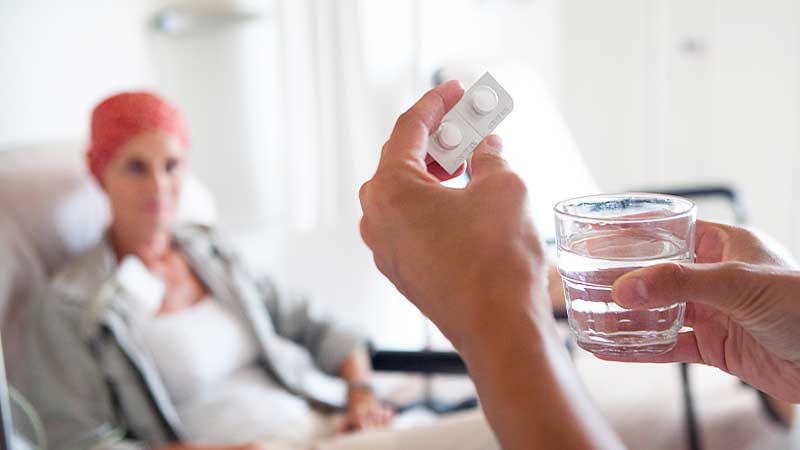
Solution to monitoring temperatures of oncology medications
A panel of 14 hospitals across The Netherlands was set up consisting of six university hospitals, six teaching hospitals and two general hospitals. Each hospital was to use a system of sealed bags containing the medicines, and a Timestrip neo indicator with oncology drugs dispensed to patients.
When any of these drugs are returned to the hospital pharmacy unused, the pharmacists can check i) that the package has not been interfered with, and ii) that the temperatures incurred during storage and transport have not exceeded specified limits.
When any of these drugs are returned to the hospital pharmacy unused, the pharmacists can check i) that the package has not been interfered with, and ii) that the temperatures incurred during storage and transport have not exceeded specified limits.
A custom neo indicator was developed with a special set of temperature ranges to be monitored. A series of LEDs on the front of the indicator show clearly when specified temperature limits have been breached.
One alert is set at 2ºC, another indicates the duration of exposure above 25ºC for up to eight hours, and a third indicator shows a breach above 30ºC for four hours or more.
As the neo indicator alerts are clear and irreversible, clinicians can have confidence in the readings, and a further safeguard is included in the form of a QR code on the indicator that can be scanned to provide serial number data for traceability.
One alert is set at 2ºC, another indicates the duration of exposure above 25ºC for up to eight hours, and a third indicator shows a breach above 30ºC for four hours or more.
As the neo indicator alerts are clear and irreversible, clinicians can have confidence in the readings, and a further safeguard is included in the form of a QR code on the indicator that can be scanned to provide serial number data for traceability.
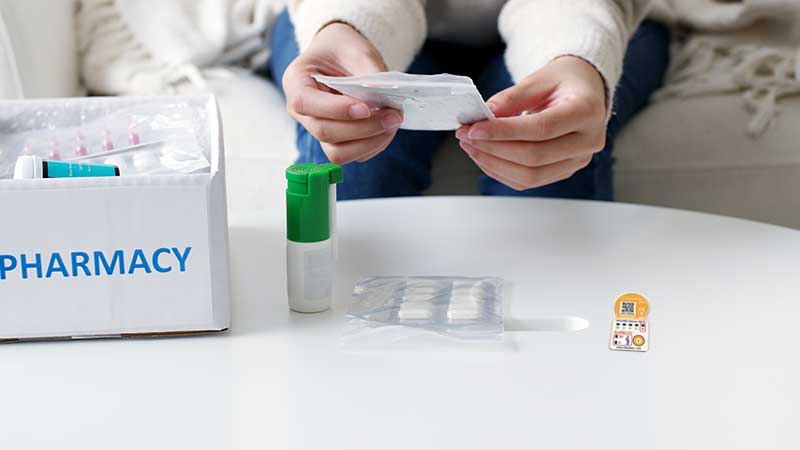
Ideal solution for monitoring pharmaceutical waste
PhD student at Radboudumc Shirley Xie MSc, is the Investigator for the trial: “We needed a simple yet effective device which gives us a visible confirmation of medicine quality. As well as being scientifically robust, the little devices needed to be user friendly and very easy to read and interpret."
Benefits of monitoring temperature of oncology pharmaceuticals
The trial is progressing well and is expected to provide the evidence needed that using a system such as this can be a cost-effective way of providing for the re-allocation of oncology (and potentially other) medicines, reducing waste.
Miss Xie says: “Use of the temperature indicator is an essential element in this trial, which in itself helps in our overall quest to: ‘Make a significant impact on health and healthcare’. As well as the potential improvements in efficiency and patient care from re-dispensing unused anti-cancer drugs, there is a sustainability benefit associated with the reduced waste.”
Miss Xie says: “Use of the temperature indicator is an essential element in this trial, which in itself helps in our overall quest to: ‘Make a significant impact on health and healthcare’. As well as the potential improvements in efficiency and patient care from re-dispensing unused anti-cancer drugs, there is a sustainability benefit associated with the reduced waste.”
